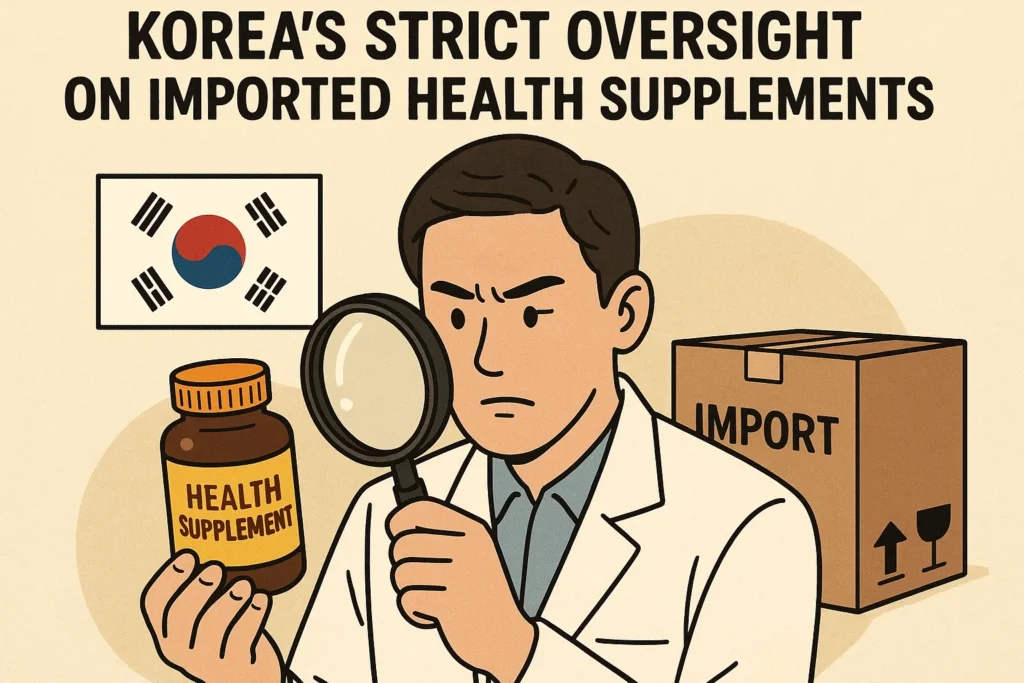Korea’s Strict Oversight on Imported Health Supplements
Korea’s Ministry of Food and Drug Safety (MFDS) enforces one of the world’s most rigorous regulatory systems for imported food and health supplements. Before entering the market, every foreign-manufactured product must pass a comprehensive inspection process. Those that fail are either entirely destroyed or shipped back. Furthermore, random inspections are conducted even after market entry. If a product’s labeling fails to match its approved documentation, the product is subject to immediate disposal. These tight controls are designed to protect Korean consumers and ensure only safe, properly labeled products reach store shelves.
A Regulatory Loophole Exposed – The Case of Natural*
Despite the system’s strict surface-level controls, a serious loophole has recently come to light. A domestic importer, Natural**, was caught submitting false information regarding the location of its overseas manufacturing facility. In response, the company received only a 20-day business suspension—a penalty widely viewed as insufficient given the nature of the violation. Even more concerning is that the falsely reported products remain in circulation, without any recall or destruction order issued by the authorities. This case reveals how a company can exploit a regulatory gap and still keep its products on the shelves, despite knowingly violating import requirements.
Weak Enforcement Undermines Consumer Protection
The Natural** case underscores a deeper flaw: strong import regulations are meaningless without firm, transparent enforcement. While MFDS excels in pre-market inspections, post-violation actions—especially for intentional fraud—lack the severity needed to serve as a deterrent. Consumers trust that all products in the market have been verified and tracked with full accuracy. But when violations such as false factory registration go unpunished or unresolved, that trust is eroded. Allowing mislabeled products to remain in distribution presents a real risk to public health.
Conclusion: Closing the Loophole for Public Safety
This incident serves as a wake-up call for Korean regulators. The existence of such a loophole undermines the credibility of the entire regulatory system. Immediate actions must be taken to strengthen enforcement, including mandatory recalls and stricter penalties for fraudulent reporting. Korean consumers deserve access to safe, traceable, and honestly represented health supplements. Closing this loophole is not just a regulatory adjustment—it is an essential step toward preserving consumer trust and protecting public safety.
